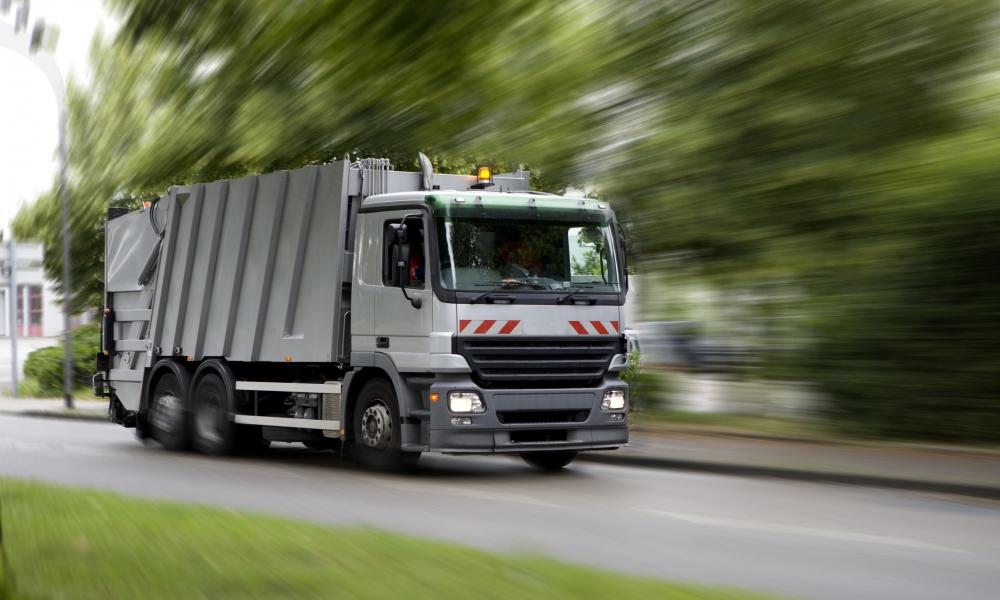At WiseGEEK, we're committed to delivering accurate, trustworthy information. Our expert-authored content is rigorously fact-checked and sourced from credible authorities. Discover how we uphold the highest standards in providing you with reliable knowledge.
What are the Different Methods of Household Waste Collection?
In earlier days, the trash can was the only real means of getting rid of household waste. This multi-purpose waste disposal method took everything in and was taken away each week by trash collectors. Today, people have far more methods of household waste collection to choose from. By putting a little thought into better methods of household waste collection, homes can become more environmentally friendly, and even more useful.
Recycling is one of the most important methods of household waste collection. By separating out glass, paper, plastic, and aluminum products, recycling allows these materials to be reused again and again. Recycling cuts down on human consumption of natural resources, as well as slowing the expansion of landfills. Many garbage companies will provide special bins for recyclables that are collected with trash. Like almost all green methods of household waste collection, recycling requires only a little additional thought, and can save an enormous amount of trouble for the environment and the planet.

Recycling in bins may not be the only way to ensure re-use of products. Consider other possible uses for items before throwing them out in the first place. Cardboard can make fantastic forts and castles for children, or can serve as ground protecting material and even a paint palette. Pretty glass bottles make wonderful vases, while shredding paper can give smart users confetti or packing material.

Some methods of household waste collection can help gardens bloom and fruits and vegetables grow. Composting is a major component of creating garden-friendly waste. By layering organic materials with natural fertilizer and dirt, a compost heap creates a rich stew of nutrients that can be used to help plants flourish and grow. Food waste, such as apple cores, banana peels, corncobs, or the tops of carrots can be used in compost heaps, as well as garden debris like leaves and twigs.

For methods of household waste collection that concern hazardous materials, consult local government sources. Many cities and towns offer semi-annual collections of materials such as oil, paint, batteries, and harmful chemicals. Contributing hazardous wastes to these collections ensures the proper and safe disposal of materials that can be harmful to the environment and animal life. Do not ever dispose of hazardous household wastes by poring down drains or sinks. This can cause major water pollution that affects the composition of oceans and water sources and may do damage to countless plant, animal, and bird species.
AS FEATURED ON:
AS FEATURED ON:

















Discussion Comments
@Mor - Household waste collection is a real problem in developing nations, and especially, I'd imagine in island nations. I know that in many places in Africa, you can't go anywhere without seeing massive amounts of plastic bags littering the street and the countryside.
While placing rubbish bins and organizing collections is a good idea, frankly I think this is just a temporary solution, and we should be thinking of it this way here as well.
More permanent solutions would be to start a recycling collection, and just making everything biodegradable and reusable. This would be especially useful in poor countries where an extra source of compost or another way of getting cheap materials should be welcome.
I was recently in Tonga, which is a small island country which could be classified as a developing world nation.
I noticed that there were waste bins in several villages. Just, a single public waste bin, like you would see every block in a major city.
It made me wonder what they do with the rubbish, as it's unlikely in such a small island that there is much room for a massive disposal site.
I guess they probably burn it.
Still I think it is awesome to see this kind of initiative in poor villages. I'm sure it makes the streets much safer for kids to play in, if the trash is being collected like this.
Post your comments